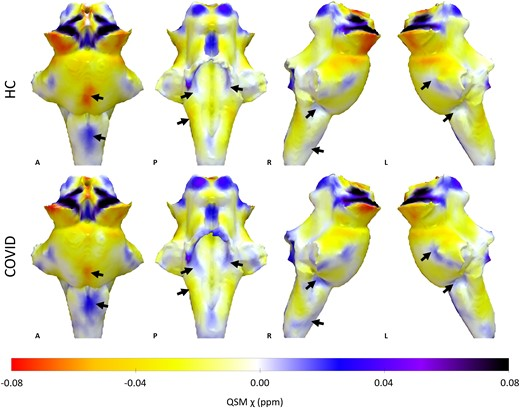this post was submitted on 15 Jan 2025
562 points (98.4% liked)
Science
13126 readers
3 users here now
Studies, research findings, and interesting tidbits from the ever-expanding scientific world.
Subcommunities on Beehaw:
Be sure to also check out these other Fediverse science communities:
This community's icon was made by Aaron Schneider, under the CC-BY-NC-SA 4.0 license.
founded 3 years ago
MODERATORS
you are viewing a single comment's thread
view the rest of the comments
view the rest of the comments

These people are addicted to this feeling that they have discovered some secret that destroys conventional wisdom and sheds a whole new light on everything. They are addicted to this feeling that they’ve found a big lie everyone’s swallowed and they’re going to spit it out.
Every part of their worldview has to have that quality or they can’t hold onto it with their brains. There’s a great deal of straightforward, plain-as-day information that’s totally missing from their worldview because it doesn’t contain the drug their brain is addicted to.
The kind of person that latches onto one detail in an argument and doesn't let go. Especially when it has nothing to do with the disagreement. You know the type.
I wonder if you're on to something there. What if they do get a hit of dopamine every time they think they're being clever even though they're completely wrong, and so they deliberately lean towards all the crazy that makes them think they're being clever just for the dopamine? That would explain a lot about the MAGA crowd, as they are actually physically addicted to the crazy in that case,
Yes and there is one other aspect. When they get into this conspiracy shit, there is a whole community of people ready to welcome them. They are congratulated for seeing the light and joining the movement. This fulfills a social need for a lot of these people, who are lonely or in some cases estranged from family.
This process of feeling like you’ve drawn back the curtain on life, and, in the same stroke found “your people” is incredibly exhilarating to them. It’s like a whole new day in their lives. And THAT’S why they’ll defend their crap beliefs to the death. Because giving them up means going back to the humdrum world where they are just a nobody again.
My theory is that the type of person who falls for conspiracy nonsense is the same type of person who also succumbs to solipsism. They have a core belief that they are the protagonist of their own story, and their story can't be plain, humdrum, or boring like their daily lives had been up until the moment they "uncovered" the grand plot to deceive the world. Acknowledgement of the fact that they are not special or somehow inherently different from any other individual is psychic death, so they retreat into safe spaces and echo chambers that validate them, which make them easy targets for pseudoscience and quasi-religious beliefs.
Conspiracy allows them to indulge in the fantasy of grandiosity, while also introducing them to a community of like-minded people who will welcome them and their beliefs, and never challenge them. That makes it all the more difficult for them to break out of the spell, even when presented evidence that runs contrary to what they believe.
Yep, agree. What makes this more complex is that movie culture has relentlessly programmed all of us to think this way for decades. I don’t think it’s just a case of genetic predisposition toward solipsism, though that is surely in there as well.
Virtually all blockbuster movies and many smaller ones are about some kind of chosen hero who shatters a corrupt system, often with a single act of redemptive violence (killing the bad guy, destroying the evil machine, etc).
From Star Wars: A New Hope to The Matrix to The Hunger Games this formula has been virtually the same. It’s so relentless and consistent, and people grow up on it from an early age. Is it any surprise, with this kind of programming, that people grow up lacking the will to dedicate themselves to making a small contribution toward incremental change? No. They need shattering upheaval that saves the world, and everything less is complicity in the evil of the system.
As Zizek said: you never get to see what the hero does the day after shattering the machine. How do they rebuild a better society? Okay, redemptive violence, then what? Popular culture has no answer to this. In real life it’s about compromise, hard work, incremental improvement. But we have generations of people who’ve been fed compelling narratives about everything but that.